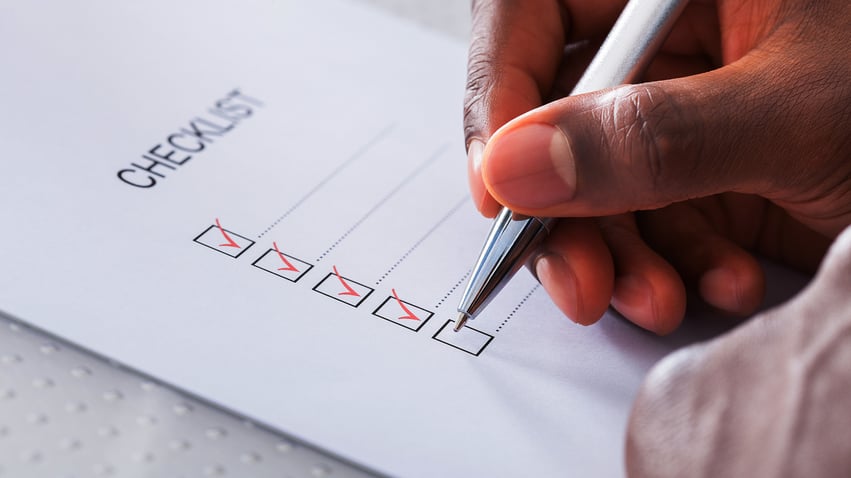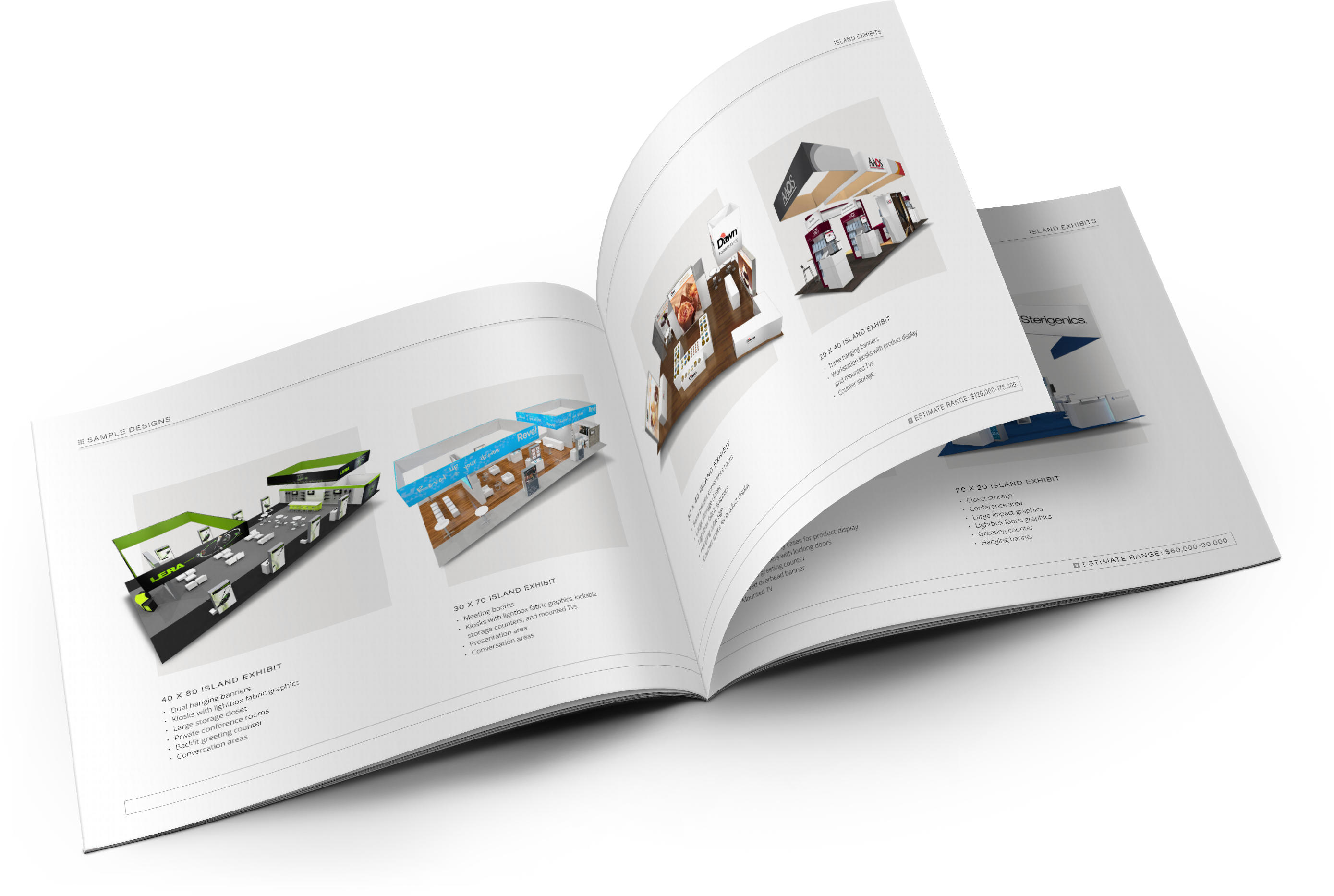The work doesn't end just because the guests are gone. Before you take a much-deserved break, here are some key things you should do as soon as the venue's doors close. Ah, the last guest has left, and the venue's doors are officially closed. Time to relax, right? As event professionals know, the show isn't quite over yet. We asked some experienced event profs to share the steps they take as soon as an event wraps.
1. Say thank you!
“The absolute first thing I do after an event is send an email, cc’ing the client or company executives (if in-house), recognizing the events team for their amazing job, calling out the successes of the night, and any remarkable stats or sidebar stories,” says Dave Karraker, president of PR consultancy Raptor Communications, which has previously led media and consumer events for companies like Campari and Sony PlayStation. “Too often, particularly when working in-house, top-level executives neglect to recognize the hard work of the events team, either not thinking of it or thinking it is just part of their job. Every event is a victory in some fashion, and the soldiers who put it together should be acknowledged."
calling out the successes of the night, and any remarkable stats or sidebar stories,” says Dave Karraker, president of PR consultancy Raptor Communications, which has previously led media and consumer events for companies like Campari and Sony PlayStation. “Too often, particularly when working in-house, top-level executives neglect to recognize the hard work of the events team, either not thinking of it or thinking it is just part of their job. Every event is a victory in some fashion, and the soldiers who put it together should be acknowledged."
2. Confirm the breakdown plan is in motion.
While this was surely coordinated well in advance, it's always good to make sure everyone is on the same page about the process and schedule before leaving for the night. “Talk to the venue manager to coordinate when and how any big items will be moved out of the space,” suggests Amber Soletti, founder and CMO of Intellectual Blonde Branding & Events in Austin, Texas. “[For example,] displays, step-and-repeats, etc. are something we do on-site the day of the event.”
3. Debrief with your team (and make sure they get paid!).
Another crucial step, beyond the thank-yous? Get your team's initial feedback right away. “I check in with my on-site staff and get any kind of feedback I can so that when I reach out to the client, I am informed of what went well, what unexpected things popped up, etc.,” notes David Jacobson, founder and CEO of event entertainment company TrivWorks.
Once the dust has settled—but not too long after the event wraps—host a more formal debrief with your team, suggests Valerie Bihet, owner of VIBE Agency in Miami. “After the event, I first sit down with my team to ask what worked, what didn’t work, and what can we improve. Then I take the same questions to our vendors to get their perspective. From there we combine it all together with the survey data plus the quantitative data numbers we have (attendees, registered, engagement rates, social, etc.) and create a presentation for the client.”
4. Settle any outstanding bills and other logistics.
The morning after an event, Jenkins immediately gets to work sending thank-you notes to all suppliers, making sure all rentals are returned and back in order, and other logistics. He then shifts his attention to budgeting, working to finalize all budget sheets, expenses, and receipts. “We then establish a time to conduct a wrap-up review with the client and their team, close out all financial matters as it relates to this event, and make sure all records are kept," he notes. "The event is not over until all bills are paid and a final evaluation is written."
5. Analyze event data.
Study event data to assess the event's success, identify areas for improvement, and inform future event planning. Some of this can be done before the doors even close, notes Phillips. “Evaluate the event metrics in real-time, and connect with anyone on-site that offers interesting insight. Who was most engaged, and is there a clear vision by age, industry, or profession? Did the energy of the experience flow, and who has observations on the cadence of engagement?” he asks. “Asking these questions near the end of the event will provide more detail than after letting time pass. And by listening and learning, you can better humanize the experience and your relationship with guests.”
After the initial thank-you messages, schedule a formal check-in with your client—ideally after you’ve paid all vendors, debriefed with your staff, analyzed event data, and formalized the budget. “I'm prepared, having already spoken with my staff, and am eager to know what went well, what could be improved for next time, etc.,” says Jacobson. “The order in which I do [these debriefs] is important, as I've learned. Should anything unexpected or 'bad' have happened during the event, I want to hear about it first from my staff—not from the client.”
Bihet believes that this entire debriefing process should happen within two weeks, while the event is still fresh in everyone’s mind. “We listen to the client's perspective as we present and make notes on what they liked, didn't like, and would want to be different so that we can file it with the report and turn back to it before planning the next time around,” she explains.
7. Reach out to your attendees.
In addition to debriefing with your team and with the client, reach out to sponsors, vendors, speakers, etc. It’s another opportunity to send a more personalized thank you, and it also gives you a chance to assess what went well and what can be improved in the future.
Martha Keele, COO of Alaska-based event company Toast of the Town, likes to send thank-you emails to attendees. “In this follow up we include photos, potentially a survey (if it is a conference), and a recap of the event,” she explains. “We often feel that playing off the enthusiasm and buzz attendees feel after is a good opportunity to brag about the event's success! If we raised more funds than ever before, had record attendance, featured keynote speakers, etc.—share it!” (An added tip? For annual events, use this post-event communication to start marketing next year's event, suggests Keele.)
8. Plan post-event social recaps and other marketing strategies.
In addition to post-event emails, think through your post-event social media plan, Keele adds. “Social media strategy often includes pre and during the event, but we often like to make sure to keep posting with things such as event recaps and photos,” she says. “Tag partners, sponsors, etc. to spread further awareness about the event, and ask partners to share the posts on their social media as well!”
Soletti also focuses on post-event social media, and encourages tagging everyone involved in the event to expand your social reach. She also checks in with any official event photographers right away. “Check in with the photographer [during the event] to make sure they are capturing all of the shots needed for recaps and post-event press. And gain a commitment that they will send you some selects the evening of the event so you can send to press to meet their timing for publishing stories the next day,” she advises.
Make sure to carefully archive all of your files for future reference. And if you do have confirmation for next year’s event, start thinking about it now. “After an event is completed, it is common for people to feel like, 'OK, all is done.' But there's still some work to do, and a key one that is often overlooked is confirmations for the next year,” points out Keele. “Set yourself up for success for the next year, if you have not yet, by signing the venue contract and asking all major vendors to save the date to ensure the next year's event will be successful.”
10. Give yourself—and your team—time to celebrate and unplug.
“Events can take weeks, months, or even years to organize. So, when an event has successfully come to an end, allow yourself time to celebrate that,” says Deb Das, community manager and event organizer at coffee company Home Grounds. “Acknowledging your hard work and the hard work of those around you will not only make everyone feel valued, but it will make all of that work feel worth it. People are more than robots. People have feelings that need to be encouraged, affirmed, and respected. … So don’t make them feel like they are on a never-ending conveyor belt by assigning them their next task before they’ve even caught their breath from the last.”
Guest Blogger - Claire Hoffman - https://www.bizbash.com/production-strategy/strategy/article/22751321/things-to-do-as-soon-as-your-event-ends






